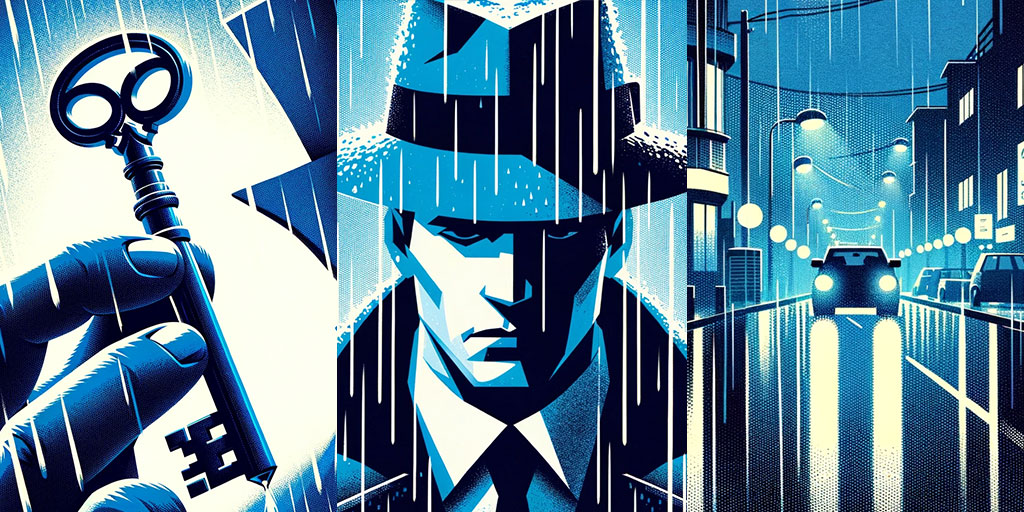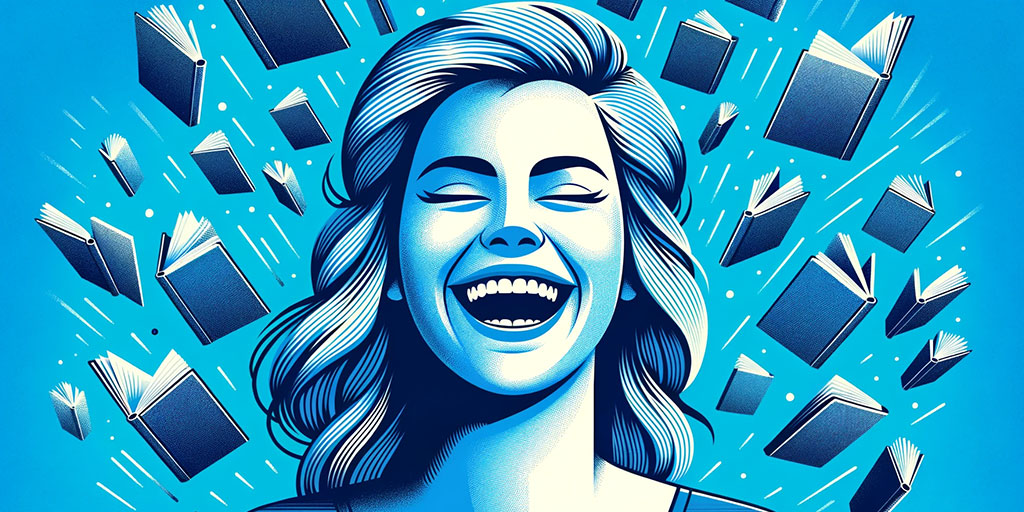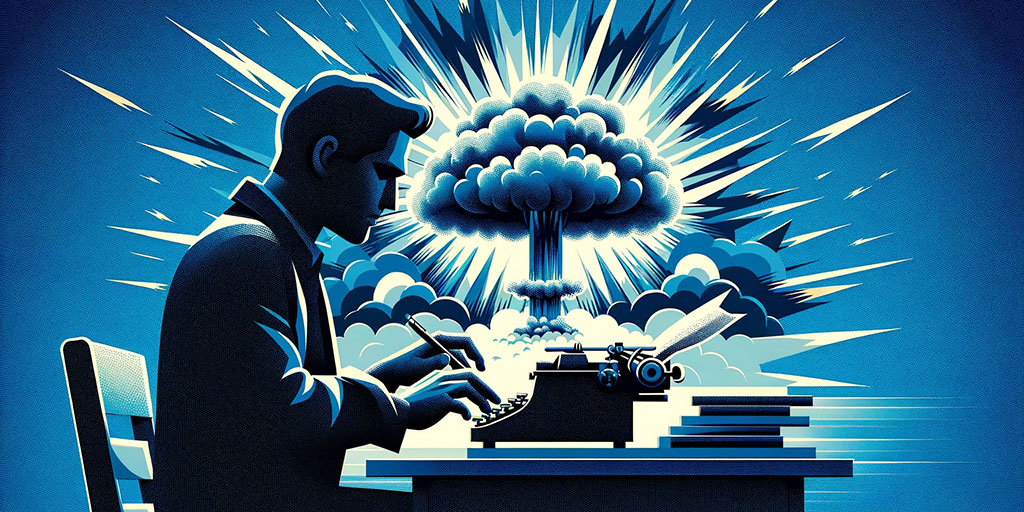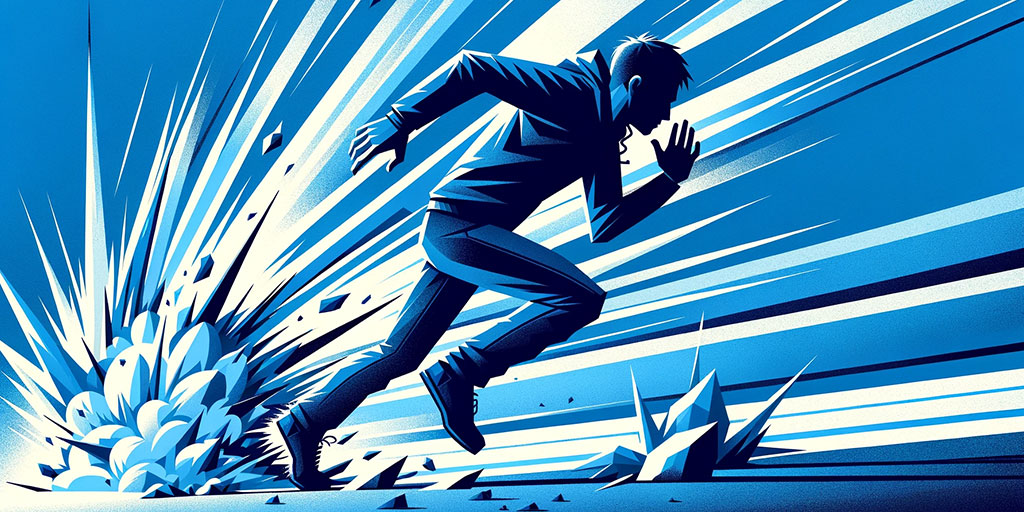Writing is a craft that has captivated, inspired, and frustrated people throughout history, and some of the greatest minds of all time have left behind words of wisdom on the subject. From novelists to poets, playwrights to essayists, the world’s most inspiring authors have shared their insights in the form of writing quotes, providing guidance and inspiration to aspiring writers everywhere.
In the following you will discover a stunning collection with the best quotes about the art of writing. Whether you’re looking for tips on how to improve your craft, or seeking motivation to keep going in the face of obstacles, these quotes are sure to inspire and guide you on your writing journey.
Writing Process
The writing process can be both exhilarating and challenging, and every writer has their own unique approach to it. The following quotes offer a few ideas on how some great minds in literature approach the craft of writing and may provide guidance to those seeking to improve the process for themselves.

“There is nothing to writing. All you do is sit down at a typewriter and bleed.”
― Ernest Hemingway (about)
“Writing is like driving at night in the fog. You can only see as far as your headlights, but you can make the whole trip that way.”
― E.L. Doctorow (about)
“We have to continually be jumping off cliffs and developing our wings on the way down.”
― Kurt Vonnegut (about)
“It may be observed of good writing, as of good blood, that it is much easier to say what it is composed of than to compose it.”
― Charles Caleb Colton (about)
“Writing is a manual labor of the mind: a job, like laying pipe.”
― John Gregory Dunne (about)

“The scariest moment is always just before you start.”
― Stephen King (about)
“Write drunk, edit sober.”
― Ernest Hemingway (about)
“Perfectionism is the voice of the oppressor, the enemy of the people. It will keep you cramped and insane your whole life, and it is the main obstacle between you and a shitty first draft.”
― Anne Lamott (about)
“Don’t bend; don’t water it down; don’t try to make it logical; don’t edit your own soul according to the fashion. Rather, follow your most intense obsessions mercilessly.”
― Franz Kafka (about)
“Writing a book is a horrible, exhausting struggle, like a long bout with some painful illness. One would never undertake such a thing if one were not driven on by some demon whom one can neither resist nor understand.”
― George Orwell (about)

“If I waited for perfection, I would never write a word.”
― Margaret Atwood (about)
“A scrupulous writer, in every sentence that he writes, will ask himself at least four questions, thus: 1. What am I trying to say? 2. What words will express it? 3. What image or idiom will make it clearer? 4. Is this image fresh enough to have an effect?”
― George Orwell (about)
“What is the essence of the art of writing? Part One: Have something to say. Part Two: Say it well.”
― Edward Abbey (about)
“I would advise any beginning writer to write the first drafts as if no one else will ever read them — without a thought about publication — and only in the last draft to consider how the work will look from the outside.”
― Anne Tyler (about)
“Good fiction’s job is to comfort the disturbed and disturb the comfortable.”
― David Foster Wallace (about)
Craft of Writing Quiz (Easy)

Inspiration & Creativity
Inspiration and creativity are the lifeblood of writing, and without them, the written word would lack the power to move, inspire, and connect with readers. The quotes in this section express the insights of some great authors and may provide inspiration to writers seeking to tap into their own creative potential.

“The worst enemy to creativity is self-doubt.”
― Sylvia Plath (about)
“You never have to change anything you got up in the middle of the night to write.”
― Saul Bellow (about)
“Everybody walks past a thousand story ideas every day. The good writers are the ones who see five or six of them. Most people don’t see any.”
― Orson Scott Card (about)
“Ideas are like rabbits. You get a couple and learn how to handle them, and pretty soon you have a dozen.”
― John Steinbeck (about)
“Sometimes the ideas just come to me. Other times I have to sweat and almost bleed to make ideas come. It’s a mysterious process, but I hope I never find out exactly how it works. I like a mystery, as you may have noticed.”
― J.K. Rowling (about)

“Start writing, no matter what. The water does not flow until the faucet is turned on.”
― Louis L’Amour (about)
“When I sit down to write a book, I do not say to myself, ‘I am going to produce a work of art.’ I write it because there is some lie that I want to expose, some fact to which I want to draw attention, and my initial concern is to get a hearing.”
― George Orwell (about)
“Get it down. Take chances. It may be bad, but it’s the only way you can do anything really good.”
― William Faulkner (about)
“You can’t wait for inspiration. You have to go after it with a club.”
― Jack London (about)
“Imagination is like a muscle. I found out that the more I wrote, the bigger it got.”
― Philip José Farmer (about)

“Amateurs sit and wait for inspiration, the rest of us just get up and go to work.”
― Stephen King (about)
“Your intuition knows what to write, so get out of the way.”
― Ray Bradbury (about)
“All that happens to us, including our humiliations, our misfortunes, our embarrassments, all is given to us as raw material, as clay, so that we may shape our art.”
― Jorge Luis Borges (about)
“Everyone is born creative; everyone is given a box of crayons in kindergarten. Then when you hit puberty they take the crayons away and replace them with dry, uninspiring books on algebra, history, etc. Being suddenly hit years later with the ‘creative bug’ is just a wee voice telling you, ‘I’d like my crayons back, please.”
― Hugh MacLeod (about)

“Write what should not be forgotten.”
― Isabel Allende (about)
Storytelling
At the heart of every great piece of writing lies a compelling story. Whether it’s a novel, a play, or a poem, the power of storytelling is what captures readers’ imaginations and keeps them engaged from start to finish. The following insights provide a glimpse into how some of the greatest storytellers in history approach their craft, and may motivate you to create your own captivating narratives.

“A good story is a dream shared by the author and the reader. Anything that wakes the reader from the dream is a mortal sin.”
― Victor J. Banis (about)
“Stories may well be lies, but they are good lies that say true things, and which can sometimes pay the rent.”
― Neil Gaiman (about)
“I do not over-intellectualise the production process. I try to keep it simple: Tell the damned story.”
― Tom Clancy (about)
“There are some books that refuse to be written. They stand their ground year after year and will not be persuaded. It isn’t because the book is not there and worth being written — it is only because the right form of the story does not present itself. There is only one right form for a story and, if you fail to find that form, the story will not tell itself.”
― Mark Twain (about)
“In many cases when a reader puts a story aside because it ‘got boring,’ the boredom arose because the writer grew enchanted with his powers of description and lost sight of his priority, which is to keep the ball rolling.”
― Stephen King (about)

“A well-composed book is a magic carpet on which we are wafted to a world that we cannot enter in any other way.”
― Caroline Gordon (about)
“If you want to write a fantasy story with Norse gods, sentient robots, and telepathic dinosaurs, you can do just that. Want to throw in a vampire and a lesbian unicorn while you’re at it? Go ahead. But the endless possibility of the genre is a trap. It’s easy to get distracted by the glittering props available to you and forget what you’re supposed to be doing: telling a good story.”
― Patrick Rothfuss (about)
“All stories are about wolves. There’s escaping from the wolves, fighting the wolves, capturing the wolves, taming the wolves. Being thrown to the wolves, or throwing others to the wolves so the wolves will eat them instead of you. Running with the wolf pack. Turning into a wolf. Best of all, turning into the head wolf. No other decent stories exist.”
― Margaret Atwood (about)
“After nourishment, shelter and companionship, stories are the thing we need most in the world.”
― Philip Pullman (about)
“The story must strike a nerve in me. My heart should start pounding when I hear the first line in my head. I start trembling at the risk.”
― Susan Sontag (about)

“The secret of being a bore is to tell everything.”
― Voltaire (about)
“All stories have to at least try to explain some small portion of the meaning of life.”
― Gene Weingarten (about)
“Writing controlled fiction is called “plotting.” Buckling your seatbelt and letting the story take over, however… that is called “storytelling.” Storytelling is as natural as breathing; plotting is the literary version of artificial respiration.”
― Stephen King (about)
“What monster sleeps in the deep of your story? You need a monster. Without a monster there is no story.”
― Billy Marshall (about)
Revision & Editing
Writing is a process of constant refinement, and every writer knows that revision and editing are crucial steps in the journey from the messy first draft to the brilliant final product. Have a look at these quotes from some accomplished authors on the art of, and need for, revising and editing.

“The road to hell is paved with adverbs.”
― Stephen King (about)
“Substitute ‘damn’ every time you’re inclined to write ‘very;’ your editor will delete it and the writing will be just as it should be.”
― Mark Twain (about)
“Here is a lesson in creative writing. First rule: Do not use semicolons. […] All they do is show you’ve been to college.”
― Kurt Vonnegut (about)
“Cut out all these exclamation points. An exclamation point is like laughing at your own joke.”
― F. Scott Fitzgerald (about)
“The first draft of anything is shit.”
― Ernest Hemingway (about)

“You can always edit a bad page. You can’t edit a blank page.”
― Jodi Picoult (about)
“I’m writing a first draft and reminding myself that I’m simply shovelling sand into a box so that later I can build castles.”
― Shannon Hale (about)
“On first drafts: It is completely raw, the sort of thing I feel free to do with the door shut — it’s the story undressed, standing up in nothing but its socks and undershorts.”
― Stephen King (about)
“You do an awful lot of bad writing in order to do any good writing. Incredibly bad. I think it would be very interesting to make a collection of some of the worst writing by good writers.”
― William S. Burroughs (about)
“I just give myself permission to suck. I delete about 90 percent of my first drafts, so it doesn’t really matter much if on a particular day I write beautiful and brilliant prose that will stick in the minds of my readers forever, because there’s a 90 percent chance I’m just going to delete whatever I write anyway. I find this hugely liberating.”
― John Green (about)

“The first draft is just you telling yourself the story.”
― Terry Pratchett (about)
“In writing, you must kill all your darlings.”
― William Faulkner (about)
“I’ve found the best way to revise your own work is to pretend that somebody else wrote it and then to rip the living shit out of it.”
― Don Roff (about)
“When your story is ready for a rewrite, cut it to the bone. Get rid of every ounce of excess fat. This is going to hurt; revising a story down to the bare essentials is always a little like murdering children, but it must be done.”
― Stephen King (about)
“If you show someone something you’ve written, you give them a sharpened stake, lie down in your coffin, and say, ‘When you’re ready’.”
― David Mitchell (about)

“A successful book is not made of what is in it, but what is left out of it.”
― Mark Twain (about)
“It was like removing layers of crumpled brown paper from an awkwardly shaped parcel, and revealing the attractive present which it contained.”
― Diana Athill (about)
“Editing might be a bloody trade, but knives aren’t the exclusive property of butchers. Surgeons use them too.”
― Blake Morrison (about)
“Making love to me is amazing. Wait, I meant: making love, to me, is amazing. The absence of two little commas nearly transformed me into a sex god.”
― Dark Jar Tin Zoo (about)
“No author dislikes to be edited as much as he dislikes not to be published.”
― Russell Lynes (about)
The Power of Language
Language has the power to move, inspire, and transform us. The quotes in this section reveal how great writers have harnessed the power of language to create works that resonate deeply with readers, and may inspire you to tap into the full potential of your own words.

“Don’t tell me the moon is shining; show me the glint of light on broken glass.”
― Anton Chekhov (about)
“Reading your words, what you wrote, how you were lonely sometimes and afraid, but always brave; the way you saw the world, its colors and textures and sounds, I felt–I felt the way you thought, hoped, felt, dreamt.”
― Cassandra Clare (about)
“The difference between the almost right word and the right word is really a large matter. ’tis the difference between the lightning bug and the lightning.”
― Mark Twain (about)
“Words can be like X-rays if you use them properly – they’ll go through anything. You read and you’re pierced.”
― Aldous Huxley (about)
“I love writing. I love the swirl and swing of words as they tangle with human emotions.”
― James Michener (about)

“Ideas are cheap. It’s the execution that is all important.”
― George R.R. Martin (about)
“Good writing is supposed to evoke sensation in the reader – not the fact that it is raining, but the feeling of being rained upon.”
― E. L. Doctorow (about)
“You don’t write about the horrors of war. No. You write about a kid’s burnt socks lying in the road.”
― Richard Price (about)
“My task, which I am trying to achieve is, by the power of the written word, to make you hear, to make you feel–it is, before all, to make you see.”
― Joseph Conrad (about)
“In writing. Don’t use adjectives which merely tell us how you want us to feel about the thing you are describing. I mean, instead of telling us a thing was “terrible,” describe it so that we’ll be terrified. Don’t say it was “delightful”; make us say “delightful” when we’ve read the description. You see, all those words (horrifying, wonderful, hideous, exquisite) are only like saying to your readers, “Please will you do my job for me.”
― C.S. Lewis (about)
Characters & Dialogue
Compelling characters and engaging dialogue are essential elements of any great work of fiction. In this section, you will find quotes from some talented writers on the art of creating memorable characters and crafting realistic dialogue, which may inspire you to breathe life into your own fictional world.

“I write to give myself strength. I write to be the characters that I am not.”
― Joss Whedon (about)
“Be a sadist. No matter how sweet and innocent your leading characters, make awful things happen to them — in order that the reader may see what they are made of.”
― Kurt Vonnegut (about)
“First, find out what your hero wants, then just follow him.”
― Ray Bradbury (about)
“The characters in my novels are my own unrealised possibilities. That is why I am equally fond of them all and equally horrified by them. Each one has crossed a border that I myself have circumvented.”
― Milan Kundera (about)
“Don’t resist the urge to burn down the stronghold, kill off the main love interest or otherwise foul up the lives of your characters.”
― Patricia Hamill (about)

“First, find out what your hero wants, then just follow him.”
― Ray Bradbury (about)
“You take people, you put them on a journey, you give them peril, you find out who they really are.”
― Joss Whedon (about)
“Each writer is born with a repertory company in his head. Shakespeare has perhaps 20 players. I have 10 or so, and that’s a lot. As you get older, you become more skillful at casting them.”
― Gore Vidal (about)
“Which of us has not felt that the character we are reading in the printed page is more real than the person standing beside us?”
― Cornelia Funke (about)
“My only conclusion about structure is that nothing works if you don’t have interesting characters and a good story to tell. ”
― Harold Ramis (about)

“Plot is no more than footprints left in the snow after your characters have run by on their way to incredible destinations.”
― Ray Bradbury (about)
“When writing a novel a writer should create living people; people not characters. A character is a caricature.”
― Ernest Hemingway (about)
“Let’s face it, characters are the bedrock of your fiction. Plot is just a series of actions that happen in a sequence, and without someone to either perpetrate or suffer the consequences of those actions, you have no one for your reader to root for, or wish bad things on.”
― Icy Sedgwick (about)
“Fictional characters are made of words, not flesh; they do not have free will, they do not exercise volition. They are easily born, and as easily killed off.”
― John Banville (about)
“I don’t have ugly ducklings turning into swans in my stories. I have ugly ducklings turning into confident ducks.”
― Maeve Binchy (about)
Writer’s Block
Writer’s block is a common and frustrating obstacle that many writers face at some point in their careers. These quotes express the thoughts of successful writers and may provide inspiration and guidance if you are struggling with your own bouts of creative paralysis.

“A blank piece of paper is God’s way of telling us how hard it is to be God.”
― Sidney Sheldon (about)
“You just have to go on when it is worst and most helpless — there is only one thing to do with a novel and that is go straight on through to the end of the damn thing.”
― Ernest Hemingway (about)
“Writer’s block is a fancy term made up by whiners so they can have an excuse to drink alcohol.”
― Steve Martin (about)
“If my doctor told me I had only six minutes to live, I wouldn’t brood. I’d type a little faster.”
― Isaac Asimov (about)
“Writer’s block is just a symptom of feeling like you have nothing to say, combined with the rather weird idea that you should feel the need to say something.”
― Hugh MacLeod (about)

“You fail only if you stop writing.”
― Ray Bradbury (about)
“The cure for writer’s block is to write.”
― John Steinbeck (about)
“The writer’s block is just a failure of the ego.”
― Norman Mailer (about)
The Writer’s Life
The life of a writer is often romanticized, but it can also be challenging, isolating, and unpredictable. The following quotes on the joys and struggles of writing life may provide comfort and inspiration while you navigate your own creative journey.

“I write for the same reason I breathe – because if I didn’t, I would die.”
― Isaac Asimov (about)
“Find out the reason that commands you to write; see whether it has spread its roots into the very depth of your heart; confess to yourself you would have to die if you were forbidden to write.”
― Rainer Maria Rilke (about)
“Rejection slips, or form letters, however tactfully phrased, are lacerations of the soul, if not quite inventions of the devil — but there is no way around them.”
― Isaac Asimov (about)
“I would advise anyone who aspires to a writing career that before developing his talent, he would be wise to develop a thick hide.”
― Harper Lee (about)
“Writing is something you do alone. It’s a profession for introverts who want to tell you a story but don’t want to make eye contact while doing it.”
― John Green (about)

“A professional writer is an amateur who didn’t quit.”
― Richard Bach (about)
“Many people hear voices when no one is there. Some of them are called mad and are shut up in rooms where they stare at the walls all day. Others are called writers and they do pretty much the same thing.”
― Margaret Chittenden (about)
“Closed in a room, my imagination becomes the universe, and the rest of the world is missing out.”
― Criss Jami (about)
“You must stay drunk on writing so reality cannot destroy you.”
― Ray Bradbury (about)
“It is worth mentioning, for future reference, that the creative power which bubbles so pleasantly in beginning a new book quiets down after a time, and one goes on more steadily. Doubts creep in. Then one becomes resigned. Determination not to give in, and the sense of an impending shape keep one at it more than anything.”
― Virginia Woolf (about)

“Put down everything that comes into your head and then you’re a writer. But an author is one who can judge his own stuff’s worth, without pity, and destroy most of it.”
― Colette (about)
“There is nothing harder to estimate than a writer’s time, nothing harder to keep track of. There are moments—moments of sustained creation—when his time is fairly valuable; and there are hours and hours when a writer’s time isn’t worth the paper he is not writing anything on.”
― E.B. White (about)
“I am irritated by my own writing. I am like a violinist whose ear is true, but whose fingers refuse to reproduce precisely the sound he hears within.”
― Gustave Flaubert (about)
“Being a writer is a very peculiar sort of a job: it’s always you versus a blank sheet of paper (or a blank screen) and quite often the blank piece of paper wins.”
― Neil Gaiman (about)
“Literature is strewn with the wreckage of those who have minded beyond reason the opinion of others.”
― Virginia Woolf (about)

“A writer never has a vacation. For a writer life consists of either writing or thinking about writing.”
― Eugène Ionesco (about)
“Work like hell! I had 122 rejection slips before I sold a story.”
― F. Scott Fitzgerald (about)
“A writer who is a pro can take on almost any assignment, but if he or she doesn’t much care about the subject, I try to dissuade the writer, as in that case the book can be just plain hard labor.”
― Sterling Lord (about)
“A good writer refuses to be socialized. He insists on his own version of things, his own consciousness. And by doing so he draws the reader’s eye from its usual groove into a new way of seeing things.”
― Bill Barich (about)
“You must keep sending work out; you must never let a manuscript do nothing but eat its head off in a drawer. You send that work out again and again, while you’re working on another one. If you have talent, you will receive some measure of success – but only if you persist.”
― Isaac Asimov (about)
Writing & Reading
Writing and reading are two sides of the same coin, with each shaping and influencing the other. The quotes in this section provide some thoughts on the interplay between these two essential elements of literature, and may provide inspiration to writers and readers alike.

“If there’s a book that you want to read, but it hasn’t been written yet, then you must write it.”
― Toni Morrison (about)
“If you don’t have time to read, you don’t have the time (or the tools) to write. Simple as that.”
― Stephen King (about)
“Read, read, read. Read everything — trash, classics, good and bad, and see how they do it. Just like a carpenter who works as an apprentice and studies the master. Read! You’ll absorb it.”
― William Faulkner (about)
“Indeed, learning to write may be part of learning to read. For all I know, writing comes out of a superior devotion to reading.”
― Eudora Welty (about)
“No tears in the writer, no tears in the reader. No surprise in the writer, no surprise in the reader.”
― Robert Frost (about)

“Read a thousand books, and your words will flow like a river.”
― Lisa See (about)
“You should write because you love the shape of stories and sentences and the creation of different words on a page. Writing comes from reading, and reading is the finest teacher of how to write.”
― Annie Proulx (about)
Discipline & Routine
Discipline and routine are key components of a successful writing practice, helping authors to stay focused, motivated, and productive. These quotes offer some insights on the ability to stay on track and may guide and inspire you to establish your own writing habits.

“A small daily task, if it be really daily, will beat the labours of a spasmodic Hercules.”
― Anthony Trollope (about)
“First forget inspiration. Habit is more dependable. Habit will sustain you whether you’re inspired or not. Habit will help you finish and polish your stories. Inspiration won’t. Habit is persistence in practice.”
― Octavia Butler (about)
“Talent is insignificant. I know a lot of talented ruins. Beyond talent lie all the usual words: discipline, love, luck, but most of all, endurance.”
― James Baldwin (about)
“Do you think miners stand around all day talking about how hard it is to mine coal? They do not. They simply dig.”
― Cheryl Strayed (about)
“One thing that helps is to give myself permission to write badly. I tell myself that I’m going to do my five or 10 pages no matter what, and that I can always tear them up the following morning if I want. I’ll have lost nothing — writing and tearing up five pages would leave me no further behind than if I took the day off.”
― Lawrence Block (about)

“It is by sitting down to write every morning that one becomes a writer.”
― Gerald Brenan (about)
“Abandon the idea that you are ever going to finish. Lose track of the 400 pages and write just one page for each day, it helps. Then when it gets finished, you are always surprised.”
― John Steinbeck (about)
“The secret to being a writer is that you have to write. It’s not enough to think about writing or to study literature or plan a future life as an author. You really have to lock yourself away, alone, and get to work.”
― Augusten Burroughs (about)
“I don’t wait for moods. You accomplish nothing if you do that. Your mind must know it has got to get down to work.”
― Pearl S. Buck (about)
“You don’t start out writing good stuff. You start out writing crap and thinking it’s good stuff, and then gradually you get better at it. That’s why I say one of the most valuable traits is persistence.”
― Octavia E. Butler (about)
“Exercise the writing muscle every day, even if it is only a letter, notes, a title list, a character sketch, a journal entry. Writers are like dancers, like athletes. Without that exercise, the muscles seize up.”
― Jane Yolen (about)
Funny & Cheerful
While writing can be a serious and challenging pursuit, it can also be infused with humor and joy. These lighthearted and witty quotes can provide a chuckle or two to writers in need of a little levity.

“I love deadlines. I love the whooshing noise they make as they go by.”
― Douglas Adams (about)
“There are three rules for writing a novel. Unfortunately, no one knows what they are.”
― W. Somerset Maugham (about)
“When writing a novel, that’s pretty much entirely what life turns into: ‘House burned down. Car stolen. Cat exploded. Did 1500 easy words, so all in all it was a pretty good day.”
― Neil Gaiman (about)
“Everywhere I go, I’m asked if the universities stifle writers. My opinion is that they don’t stifle enough of them.”
― Flannery O’Connor (about)
Craft of Writing Quiz (Hard)








